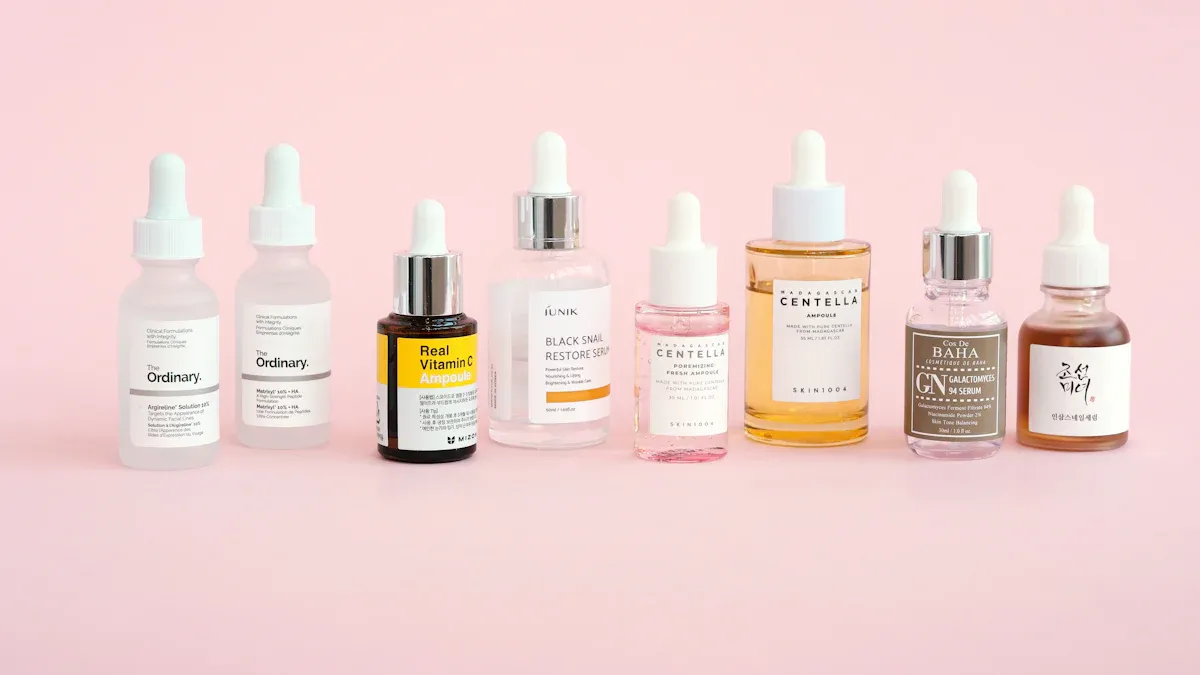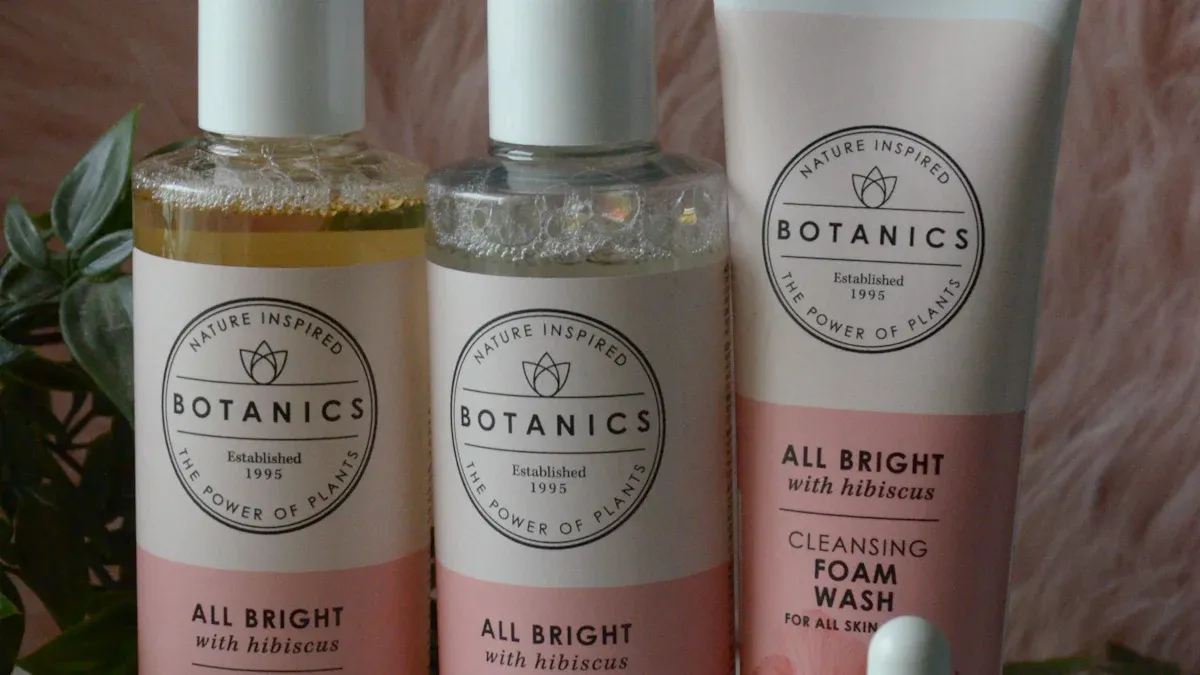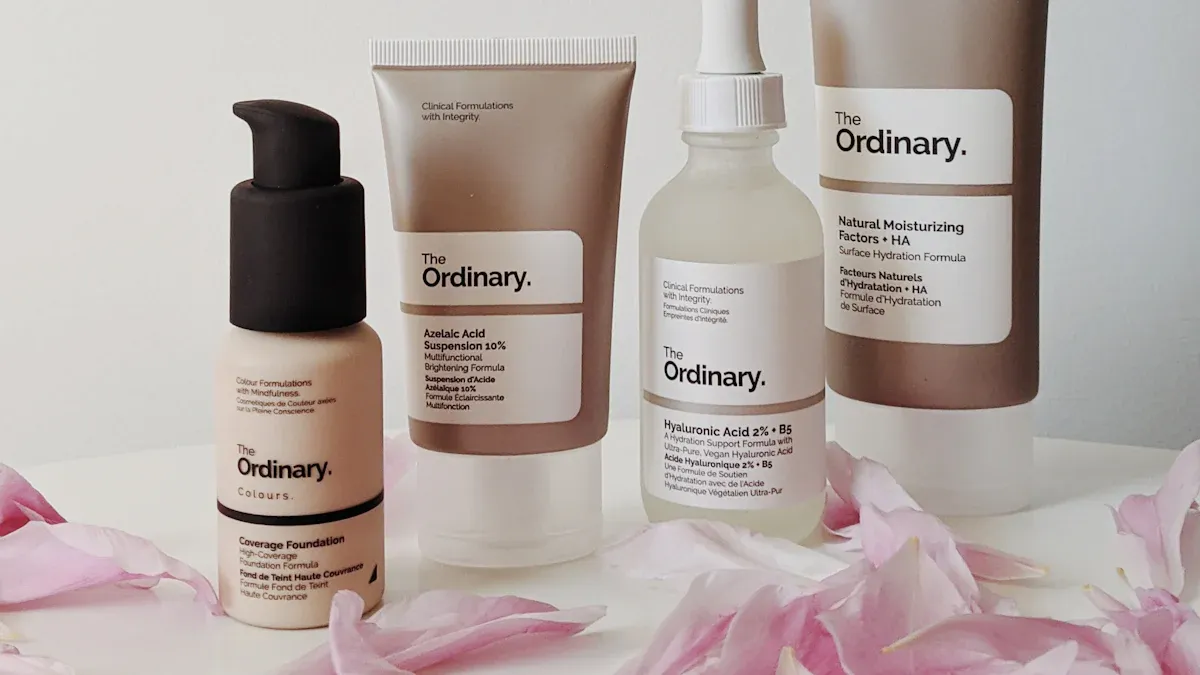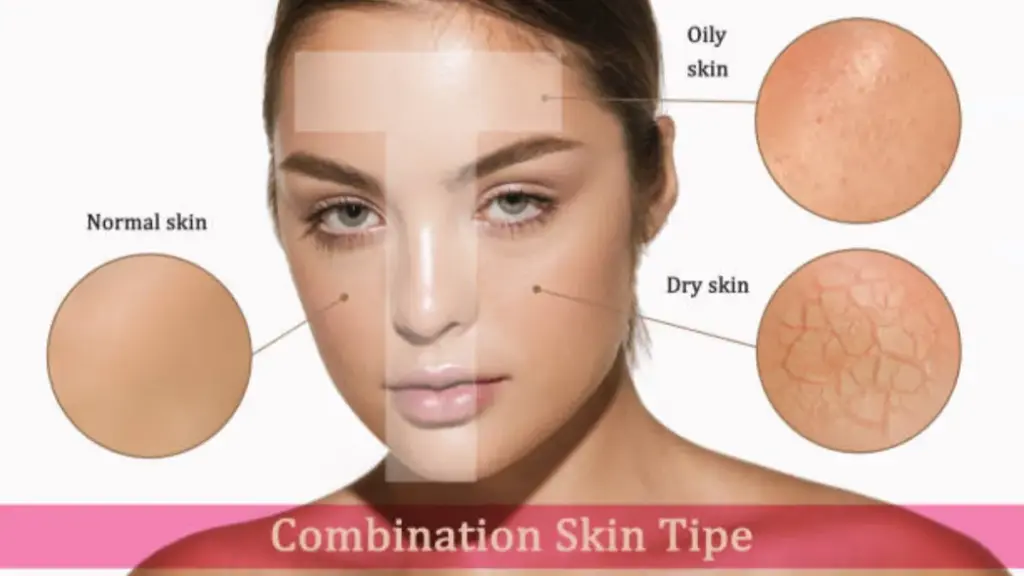
Consumers today expect more than generic solutions for their skincare needs. You likely want products that address your unique skin type, lifestyle, and preferences. This shift has fueled a surge in demand for personalized skincare, transforming the beauty industry.
E-commerce beauty sales jumped by 25% in 2023, reflecting growing interest in personalized options offered through online platforms.
The global market for personalized skincare is predicted to grow from $30.63 billion in 2024 to $66.37 billion by 2034, with an annual growth rate of 8.04%.
This growth highlights the benefits of personalized skincare, including targeted results and a more tailored experience. The rise of digital tools like virtual consultations has made it easier for you to access these solutions, reshaping how personal care products are designed and delivered.
Drivers of the Personalized Skincare Revolution

Evolving Consumer Expectations for Customization
You expect skincare products that cater to your unique preferences and individual needs. This shift in consumer behavior has redefined the beauty industry. A study by Epsilon revealed that 80% of customers are more likely to purchase from brands offering personalized experiences. This highlights the growing demand for tailored solutions.
The beauty and personal care industry has embraced this trend, offering personalized products that address specific concerns like dryness, acne, or sensitivity. These products provide targeted results, making you feel more confident in your skincare choices. The benefits of personalized skincare go beyond effectiveness; they also create a sense of exclusivity and connection with the brand.
Technological Advancements Enabling Personalization
Technology plays a pivotal role in the rise of personalized skincare products. Innovations like artificial intelligence (AI) and wearable technology have transformed how brands understand and meet your needs. AI analyzes your skin type and lifestyle to recommend custom formulations, while wearable devices provide real-time data for tailored skincare advice.
Technology | Contribution to Personalized Skincare |
|---|---|
Artificial Intelligence | Personalizes product development and recommendations based on individual skin needs. |
Wearable Technology | Offers personalized skincare advice using real-time data from daily life. |
3D Printing | Enables the creation of bespoke beauty solutions tailored to individual requirements. |
Nanotechnology | Enhances the efficacy of products by improving the delivery of active ingredients to the skin. |
Virtual/Augmented Reality | Provides interactive tools for skin analysis and visualization, enriching the consumer experience. |
These advancements make hyper-personalization possible, ensuring that your skincare routine aligns perfectly with your lifestyle and goals.
Sustainability and Ethical Trends in Customized Products
Sustainability has become a cornerstone of the skincare industry. You likely prefer products that are eco-friendly and ethically sourced. Brands now use organic ingredients, sustainable packaging, and fair-trade partnerships to meet these expectations. Reports show that 29% of consumers actively support ethical companies online, reflecting a growing demand for transparency.
The global sustainable beauty market is projected to grow from USD 190.7 billion in 2024 to USD 433.2 billion by 2034. This growth underscores the importance of clean beauty and ethical practices in personalized skincare. By choosing customized products from responsible brands, you contribute to a more sustainable future while enjoying the benefits of personalized skincare.
Challenges in Manufacturing Personalized Skincare Products
High Costs and Scalability Barriers
Producing personalized skincare products often requires significant investment in research and development. You may wonder why these products cost more than generic options. The answer lies in the complexity of creating tailored solutions that meet individual needs. Advanced technologies like AI-driven formulation and 3D printing demand substantial upfront costs.
Smaller brands face scalability barriers when trying to meet growing demand. Contract manufacturing offers a solution by minimizing upfront investments and streamlining production. However, scaling personalized skincare production remains challenging due to the need for specialized equipment and processes.
High costs arise from developing new formulations using advanced technologies.
Significant investment in research ensures the safety and efficacy of personalized products.
Sustainability concerns regarding packaging technologies add to production expenses.
Despite these challenges, technological advancements continue to improve efficiency and product quality, paving the way for more accessible customized products.
Regulatory and Safety Compliance Complexities
Navigating regulatory requirements is one of the most intricate aspects of manufacturing personalized skincare. You expect products to be safe and effective, but ensuring this involves strict compliance with cosmetic regulations. Manufacturers must adhere to standards like Good Manufacturing Practices (GMP) and ALCOA+ principles, which require thorough validation and calibration of equipment and methods.
Regulatory hurdles complicate product development. For example:
Advanced testing methods are necessary to meet safety standards.
Ethical concerns, such as avoiding animal testing, impact product development.
Brands also need regulatory expertise to navigate these complexities. Controlled documents, training, and adherence to safety protocols ensure that personalized skincare products meet your expectations. These measures protect you while maintaining the integrity of the manufacturing process.
Customization Challenges in Formulation and Production
Creating tailored skincare products involves unique challenges in formulation and production. You may have specific concerns, such as sensitivity or dryness, that require custom solutions. Manufacturers must balance personalization with consistency to deliver high-quality products.
Case studies highlight common challenges and solutions:
Case Study | Challenge | Solution | Result |
|---|---|---|---|
Inconsistent Existing Product | Product batches varied in quality | Recommended changes to raw materials | Corrected batch inconsistency |
Lotion with Preservatives | Microbial growth in lotion | Reformulated the preservative system | Enhanced product stability |
New Product from Start to Finish | Creating a new product concept | Developed a custom formula | Successfully launched the product |
Protein Powder Solubility | Poor solubility and taste issues | Improved solubility and collaborated | Enhanced product quality and consistency |
These examples show how manufacturers address fulfillment challenges and solutions in personalized skincare production. By refining raw materials, reformulating systems, and managing production processes, they ensure that your skincare products meet high standards of quality and performance.
Solutions for Overcoming Manufacturing Challenges
Leveraging AI and Data Analytics for Precision Personalization
AI has revolutionized how personalized skincare products are developed. By analyzing large datasets, AI algorithms assess your skin profile, environmental factors, and lifestyle to create tailored solutions for specific skin concerns. This approach ensures that your skincare routine aligns with your individual needs, offering a more effective and satisfying experience.
For example, AI-powered platforms like Perfect Corp can perform instant skin analysis, evaluating parameters such as moisture levels, wrinkles, and overall skin health. These tools provide personalized insights, helping brands recommend customized serums and skincare regimens. L’Oréal processes over 50 million data points daily to refine product development, while Charlotte Tilbury uses cloud analytics to understand customer behavior and optimize personalized recommendations.
AI-personalized skincare also includes advanced diagnostic tools like bio-sensors and smart packaging. These innovations provide real-time data on your skin condition and dispense customized serums with precision. By leveraging AI, brands can deliver personalized product recommendations that address your unique concerns, enhancing both efficacy and customer satisfaction.
Flexible and Modular Manufacturing Processes for Customized Products
Meeting the demand for personalized skincare requires adaptable manufacturing processes. Flexible and modular systems allow manufacturers to produce customized products efficiently, even at low volumes. This approach reduces production costs and ensures that you receive high-quality products tailored to your needs.
Key performance metrics highlight the success of these strategies:
Metric | Optimal Value | Implication |
|---|---|---|
Supply Chain Efficiency | 4-6 times/year | Ensures products remain fresh and reduces idle inventory. |
Product Return Rate | <3% | Indicates product performance and customer satisfaction. |
Production Cost per Unit | 20-30% of retail | Essential for maintaining profit margins and optimizing manufacturing processes. |
Time to Market | <90 days | Captures trends quickly and enhances customer satisfaction. |
These metrics demonstrate how modular manufacturing processes improve efficiency and product quality. By adopting these systems, manufacturers can respond quickly to market trends and deliver personalized skincare products that meet your expectations.
Integrating Sustainability into Personalized Skincare Manufacturing
Sustainability plays a crucial role in personalized skincare manufacturing. You likely prefer products that align with your values, including eco-friendly practices and ethical sourcing. Manufacturers now embrace sustainable customization by transforming production processes to reduce environmental impact.
For instance, companies implement renewable energy sources, advanced filtration systems, and water conservation techniques through closed-loop systems. Certifications like ISO 14001 and ISO 16128 ensure that products meet sustainability standards, from ingredient sourcing to packaging.
ISO Standard | Description |
|---|---|
ISO 14001 | Focuses on environmental management systems, ensuring companies commit to sustainability and legal compliance. |
ISO 16128 | Provides guidelines for natural and organic cosmetic ingredients, promoting sustainable sourcing. |
By integrating these practices, manufacturers align their products with your sustainability values. This approach not only benefits the environment but also enhances the appeal of personalized skincare routines. Sustainable customization ensures that you can enjoy tailored solutions for specific skin concerns while supporting a greener future.
The Role of Industry Leaders in Personalized Skincare Manufacturing
Oully’s Expertise in Customization and Manufacturing Solutions
Oully has established itself as a leader in personalized skincare manufacturing by offering innovative and flexible solutions. With over a decade of experience, Oully provides custom formulations tailored to meet your unique skincare needs. Their FDA-, ISO-, and cGMP-certified facility ensures the highest standards of quality and safety.
Oully’s commitment to innovation allows them to stay ahead of market trends. By leveraging advanced technologies like AI and modular manufacturing, they deliver personalized products efficiently. Their low minimum order quantity (MOQ) options and fast production turnaround make it easier for brands to bring tailored skincare solutions to market. Whether you’re looking for facial care, body care, or men’s grooming products, Oully’s expertise ensures that your personalized skincare vision becomes a reality.
Collaboration Between Brands and Manufacturers for Innovation
Collaboration between brands and manufacturers drives innovation in the personalized skincare industry. When brands and manufacturers work together, they combine expertise to create custom products that align with your preferences. For example:
Smaller companies can benefit from the brand recognition of larger partners, enhancing trust and market exposure.
Partnerships with universities provide access to cutting-edge technologies and pioneering ideas.
Aligning goals and values fosters transparency, ensuring sustainable growth and innovation.
These collaborations also improve customer experiences by pooling diverse perspectives. For instance, Ahava’s partnership with Kanerika to implement AI-driven solutions has enhanced operational efficiency and personalized customer experiences. Such partnerships demonstrate how teamwork can lead to groundbreaking advancements in the skincare industry.
Adapting to Market Dynamics and Consumer Preferences
The skincare market evolves rapidly, driven by changing consumer preferences and global trends. You now prioritize sustainable and ethical products, pushing manufacturers to adapt. Companies like Patagonia have successfully responded by offering high-quality, sustainable options. Similarly, Oully integrates eco-friendly practices into their manufacturing processes, ensuring that your personalized skincare products align with your values.
Technological advancements also play a role in adapting to market dynamics. The rise of blockchain technology has improved supply chain transparency, while e-commerce growth has made personalized skincare more accessible. Regulatory changes, though challenging, encourage manufacturers to innovate and find new opportunities. By staying agile and responsive, industry leaders ensure that your skincare needs are met in a dynamic market.
The Future of Personalized Skincare Manufacturing

Emerging Technologies Shaping the Industry
The personalized skincare industry is evolving rapidly, driven by groundbreaking technologies. AI-driven skin analysis now allows brands to assess your skin condition with precision, offering recommendations tailored to your unique needs. Devices like Almond & Co.’s beauty solutions adjust treatments in real time, ensuring your skincare routine adapts as your skin changes.
Hyper-personalization has become a key trend, with 72% of consumers willing to pay more for products designed specifically for them. Data-driven formulation further enhances this process by using advanced analytics to create custom products that address your specific concerns. These innovations not only improve product effectiveness but also elevate your overall experience.
The table below highlights some of the most impactful trends shaping the future of customization in skincare:
Trend/Metric | Description |
|---|---|
AI-driven skin analysis | Analyzes skin conditions for personalized recommendations, enhancing accuracy and consistency. |
Device-based beauty solutions | Adjusts treatments in real time based on skin analysis. |
Hyper-personalization in skincare | |
Data-driven formulation | Uses analytics to create custom products with effective ingredients. |
These advancements promise a future where your skincare routine becomes smarter, more efficient, and deeply personalized.
Expanding Accessibility Through Cost-Effective Solutions
Personalized skincare is becoming more accessible as manufacturers adopt cost-effective strategies. Modular manufacturing processes and white-label solutions allow brands to produce custom products at lower costs. This means you can enjoy tailored skincare without breaking the bank.
The global market is also seeing a rise in bioadaptive sensors and continuous skin monitoring devices. These innovations provide affordable ways to track your skin’s needs and adjust your routine accordingly. By integrating these technologies, manufacturers can offer personalized solutions that fit a wider range of budgets.
Consumer demand for personalized beauty continues to grow, especially among younger audiences. This shift, fueled by advancements in technology and data analytics, ensures that personalized skincare becomes a standard rather than a luxury.
The Growing Importance of Personalization in the Global Market
Personalization is no longer a niche trend; it’s a global movement reshaping the personal care industry. Younger consumers, in particular, seek products tailored to their individual preferences and skin types. This demand has pushed brands to innovate and deliver solutions that align with your expectations.
The table below outlines key market projections from 2025 to 2035, showcasing how personalization will dominate the skincare landscape:
Market Shift | |
|---|---|
Consumer Trends | Personalized treatments, bioadaptive sensors, and continuous skin monitoring. |
Industry Adoption | Mainstream integration across skincare, medtech, and wellness industries. |
Market Growth Drivers | Accelerated by connected wellness, precision diagnostics, and cross-industry tech partnerships. |
Sustainability and Environmental Impact | Shift toward rechargeable, biodegradable materials, and ESG-compliant devices. |
As the global market embraces personalization, you’ll benefit from innovations that make skincare more effective, sustainable, and inclusive. The future of customization in skincare is bright, offering endless possibilities for tailored solutions that meet your unique needs.
The rise of personalized skincare is transforming the beauty industry. You now expect tailored solutions that address your unique needs, driving innovation and growth. Reports show that the market will grow from $27.2 billion in 2024 to $39.2 billion by 2033, fueled by advancements like AI-driven routines and microbiome-friendly products. Manufacturers like Oully are leading this shift by combining custom formulations, sustainable practices, and cutting-edge technologies. As personalization becomes the norm, you’ll benefit from smarter, more effective skincare solutions that align with your values and lifestyle.
FAQ
What is personalized skincare?
Personalized skincare refers to products tailored to your unique skin type, concerns, and lifestyle. These solutions use data-driven insights, such as skin analysis and environmental factors, to create formulations that address your specific needs.
How does AI help in personalized skincare manufacturing?
AI analyzes your skin profile, lifestyle, and preferences to recommend custom formulations. It also optimizes production processes, ensuring efficiency and precision in creating products that match your needs.
Are personalized skincare products sustainable?
Yes, many manufacturers integrate eco-friendly practices into personalized skincare. They use sustainable packaging, ethically sourced ingredients, and energy-efficient production methods to reduce environmental impact.
Can smaller brands offer personalized skincare?
Smaller brands can collaborate with contract manufacturers like Oully. These partnerships provide access to advanced technologies, flexible production processes, and low MOQ options, enabling smaller brands to deliver tailored solutions.
Is personalized skincare expensive?
Personalized skincare can cost more due to advanced technologies and custom formulations. However, modular manufacturing and AI-driven processes are making these products more affordable and accessible.
















